Search Images
Browse Content (p. 1145)
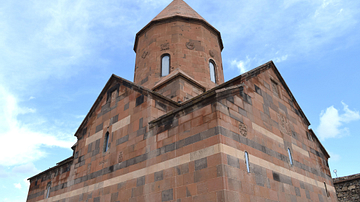
Image
St. Astvatsatsin Church at Khor Virap Monastery
Khor Virap is an ancient Armenian monastery located near the border with Turkey some 8 km (5 mi) from the town of Artashat, Armenia. Legend has it that St. Gregory the Illuminator (c. 257-c. 331 CE) was imprisoned here for 14 years by Tiridates...
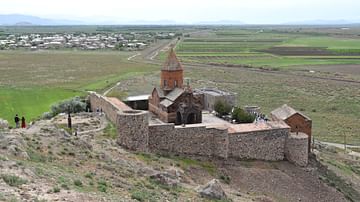
Image
Armenia's Khor Virap Monastery
Khor Virap is an ancient Armenian monastery located near the border with Turkey some 8 km (5 mi) from the town of Artashat, Armenia. It is situated on the Ararat Plain and offers fantastic views of Mt. Ararat in good weather. Legend has it...
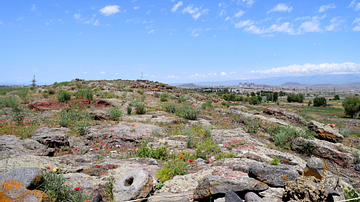
Image
Metsamor Archaeological Site in Armenia
The ruins of the ancient Metsamor Fortress lie to the southwest of Taronik, Armenia. The area was populated from the 5th millennium BC until roughly 1700 CE. The site is currently being explored and excavated by a joint Polish-Armenian research...
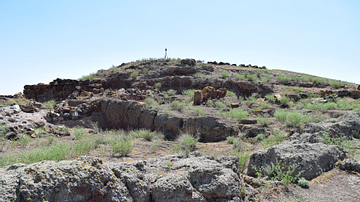
Image
The Metsamor Fortress in Armenia
The ruins of the ancient Metsamor Fortress lie to the southwest of Taronik, Armenia. The area was populated from the 5th millennium BC until roughly 1700 CE. The site is currently being explored and excavated by a joint Polish-Armenian research...
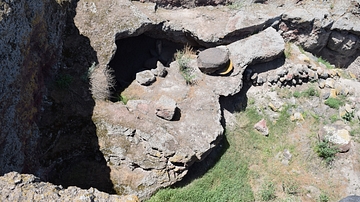
Image
Ancient Mestamor Fortress in Armenia
The ruins of the ancient Metsamor Fortress lie to the southwest of Taronik, Armenia. The area was populated from the 5th millennium BC until roughly 1700 CE. The site is currently being explored and excavated by a joint Polish-Armenian research...
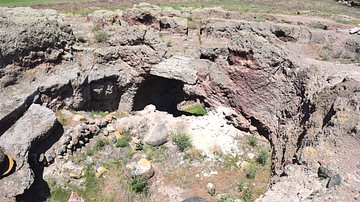
Image
Archaeological Site of Metsamor, Armenia
The ruins of the ancient Metsamor Fortress lie to the southwest of Taronik, Armenia. The area was populated from the 5th millennium BC until roughly 1700 CE. The site is currently being explored and excavated by a joint Polish-Armenian research...
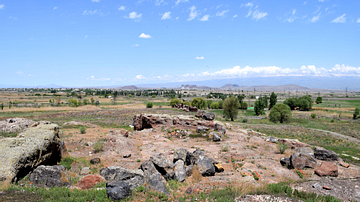
Image
Metsamor Fortress in Armenia
The ruins of the ancient Metsamor Fortress lie to the southwest of Taronik, Armenia. The area was populated from the 5th millennium BC until roughly 1700 CE. The site consists of a series of complexes, sanctuaries, and an observatory. Excavations...
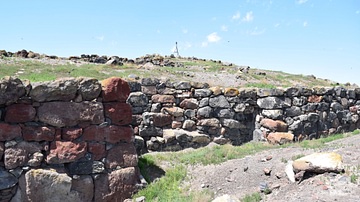
Image
Ruins of Metsamor Fortress in Armenia
Sometimes referred to as "Mestamor Castle," the ruins of the ancient Metsamor Fortress lie to the southwest of Taronik, Armenia. The area was populated from the 5th millennium BC until roughly 1700 CE. The site consists of a series of complexes...
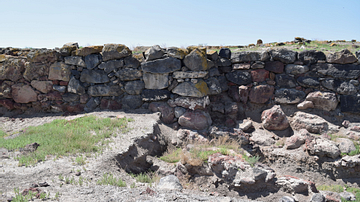
Image
Ruins of the Metsamor Archaeological Site
The ruins of the ancient Metsamor Fortress lie to the southwest of Taronik, Armenia. The area was populated from the 5th millennium BC until roughly 1700 CE. The site consists of a series of complexes, sanctuaries, and an observatory.
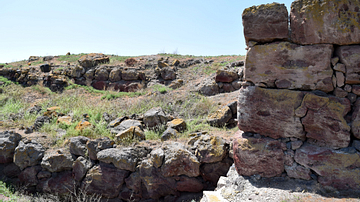
Image
Ruins at Metsamor Archaeological Site in Armenia
The ruins of the ancient Metsamor Fortress lie to the southwest of Taronik, Armenia. The area was populated from the 5th millennium BC until roughly 1700 CE. Archaeological work on the tombs located at this site began in the 1960s.